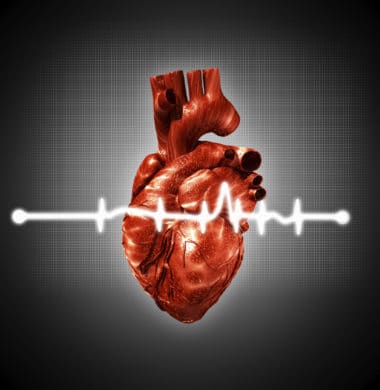Treatment of Heart Failure Part 1

TREATING THE UNDERLYING CONDITIONS.
CORONARY HEART DISEASE:
If the HF is due to underlying coronary disease then the treatment would be to identify the problem and fix it. This would involve doing an angiogram (heart cath) to look for clogged coronary arteries and either opening them up with a balloon or stent or referring to a cardiac surgeon for open-heart surgery. Sometimes the vessels are too small, twisted, or there is too much disease to fix with a stent or balloon. These patients would either be treated with medicine or evaluated for CABG (coronary artery bypass graft) or both.
IRREGULAR RHYTHMS:
Heart failure can occur when the normal electricity of the heart which causes it to beat is disrupted. Atrial fibrillation can occur as well as frequent extra beats/PVCs (Premature ventricular contractions). This disrupts the filling of the heart and rapid rates associated with it cause worsening of EF. Heart rhythms can be treated with medications or ablations. Ablations are procedures in which a catheter is threaded up into the heart and the areas causing the arrhythmia are either “frozen” (cryoablation) or “fried” (heated like a microwave). This causes a scar to form. Electricity can not pass through this scar. These procedures are performed by EP specialists (electrophysiologists).
LEAKING HEART VALVES:
An echocardiogram procedure of the heart will show how the valves in the heart are opening and closing. Heart valves have cusps or leaflets which open and close and are attached to cords. The healthy heart beats 100,000 times a day! With age the valves become thick and stiff, may accumulate calcium, be damaged by radiation or an infection of the heart. Some people are born with a defective aortic valve with only 2 cusps/leaflets (bicuspid) instead of 3 (tricuspid). This is what John Fox, the Bronco coach, was found to have and had surgically replaced.
Cords make the valves open and close. Cords can wear out and sometimes break. The valve is then ‘incompetent’ and doesn’t shut all the way. Valves in the heart keep blood flowing forward. If the valve doesn’t close correctly then when the heart beats some of the blood leaks backward. As you can imagine this cuts down on the EF and heart failure worsens. Valves can be repaired, ballooned (balloon valvuloplasty), or replaced surgically. A TAVR procedure (transcatheter aortic valve replacement) is a nonsurgical procedure that replaces a tight aortic valve with a new valve encased in metal with leaflets made of bioprosthetic tissue (either from a pig or cow’s heart). This opens the valve up. A surgical replacement is also an option.
Mitral valves also degenerate. This may be related to aging, birth defects, heart attacks, coronary heart disease, or following a history of rheumatic fever. This valve can be surgically repaired or replaced. There is also a nonsurgical procedure called the MitraClip (Transcatheter Mitral Valve Repair). In this procedure, a clip is implanted onto the center of the mitral valve to ‘clip’ the leaflets together. At SDCA we have a team of experts including Interventional physicians, NP, RN, Echo specialists, and a Cardiac surgeon who make up a structural heart team. They perform TAVR and MitraClip procedures. These have been highly successful.
THYROID DISEASE:
The thyroid gland is situated in the neck. It is regulated by a feedback mechanism between the hypothalamus, pituitary and thyroid glands. Thyroid hormone is excreted into the blood. This increases metabolism and is necessary for growth and development in children. It is responsible for how fast your body burns glucose, fat, and protein. It also mobilizes fats from tissue and breaks down cholesterol by the liver. When there is too much thyroid hormone released it can cause a rise in need for oxygen and the blood vessels dilate. Blood volume, EF/cardiac output and breathing all increase. The heart beats faster and harder. When there is not enough thyroid released the heart rate slows and the EF drops, fatigue occurs, wt gain despite a loss of appetite occurs and there is cold intolerance. There are blood tests to test the thyroid hormones and treatment is directed to the PCP (regular family doctor) or Endocrinologist.
UP NEXT – Treatment of Heart Failure Part 2: In the next blog, we will explore more treatment options for heart failure. SDCA has a bimonthly heart failure class open to the public. It is free! Please see the SDCA on the website calendar on the website to sign up. Hope to see you there!
- Does Vaping Increase Your Risk of Heart Disease? - July 7, 2025
- Lifestyle Factors That Increase Your Risk of Heart Disease - May 26, 2025
- 6 Tips for Exercising Outdoors with a Heart Condition - May 19, 2025
Learn more about the SDCA Heart Failure Clinic
Our Vision is to improve the quality of care and the quality of life for our patients across the spectrum of heart failure. We strive toward helping our patients to experience progressive healing through the best therapies available. We focus on success without failure. Failure is not an option!
Learn More
